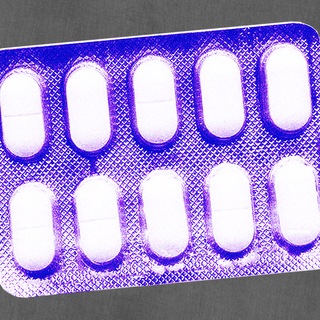
Several Omega‑3 Fish Oil Supplements in the Market Are ‘Rotten,’ Find Scientists
There’s a belief that “popping one pill a day call help keep all inflammations at bay” — but 20% of the available pills are likely to be expired.

Even as people continue to pop health supplements like candy, research suggests that the fish oil-related ones — consumed for their omega-3 content — are quite likely to be of little benefit, and not unlikely, lead to adverse effects.
“[A] reasonable human consumer would want to avoid oxidized oils… [but] if you go out and buy fish oil, there is at least a one in five chance of you getting an oil more oxidized than the recommended level,” said Dr. Ben Albert from the University of Auckland, whose research focuses on the health effects of fish oil.
To put it simply, “oxidized,” here, means “rancid,” or “rotten.” According to a report published in The Guardian, a “combination of global studies since 2015” indicated 20% of fish oil products in the market are excessively oxidized. These products include fish oil supplements; the researchers examined the quality of the pills offered by 60 large retail brands selling products globally to draw their conclusions.
Omega-3 pills are otherwise known for their anti-inflammatory properties, and for “being beneficial for heart disease, improving brain function, and strengthening metabolism.” In fact, hinting at their popularity among dietary supplements, an article on Lybrate reads, “the belief is that popping one [cod liver oil] pill a day call help keep all inflammations at bay along with keeping your liver in good health.”
However, the chemical structure of these pills makes them prone to oxidization. Yet, it is difficult for consumers to tell whether their bottle of capsules is indeed oxidized. “Flavoring is added to fish oils to help mask fishy smell and taste, and … might make more oxidized oils more palatable for people to take, so it could also be used to hide oxidation of the oil,” Dr. Albert explained, adding that “some fish oils will smell more than others, but if they don’t smell bad, that doesn’t tell you it’s not oxidized.”
As it may be apparent from the alarming tone Dr. Albert used, oxidization isn’t great for us. It not only reduces the beneficial properties the pills may have had, but studies have shown that when oxidized, fish oils can lead to organ damage and inflammation. Moreover, rancid supplements can also impact one’s cholesterol levels adversely, and have been linked with Alzheimer’s disease.
Related on The Swaddle:
Study Finds Vitamins, Popular Supplements Have Few Major Health Benefits
The lack of information around omega-3 pills is a cause for concern as demand for supplements continues to rise while we’re caught in a global health crisis. To build immunity against Covid19, people from around the world started looking for ways to boost their immunity, and in general, stay more healthy. This led to the sale of potions and remedies — from kombucha and snake oil to multivitamins; there was the good old haldi, or turmeric, too, which became a “hot commodity” in the black market.
Through the course of 2020 alone, Indians bought more than 500 crore pills of zinc, vitamin C, and multivitamins to boost their immunity amid the global pandemic, according to data released by the research wing of the All India Organisation of Chemists and Druggists. For the first time, in October 2020, sales of a multivitamin overtook sales of diabetes medication in India.
While data on whether the pandemic has inspired over-consumption of fish oil — and especially the “rotten” ones — is lacking, we do know is that omega-3 was touted as a potential “nutritional shield people can wield against the scourge of 2020.”
The new findings serve as yet another reminder that not everything that is packaged with promises is manufactured and sold with care. Take honey, for instance, a 2020 study found that 77% of India’s most popular honey brands were selling impure, sugar‑syrup concoctions — only three out of 13 honey brands commonly consumed in here passed the purity test.
And at this juncture, when people are desperate to fare better if infected with a deadly mutation of Covid19, and are trying to prepare their bodies for it — instead of practicing social distancing and following other precautionary steps, ironically — it is all the more pertinent to know whether the things we’re consuming to better our health are indeed good for our health. Perhaps, studies like the present one will inspire a robust pubic health discourse, informing people of the pitfalls of consuming myriad dietary supplements — be it Omega-3 fish oils, or multivitamins, in general — without adequate research.
After all, as Dr. Manoj Goel, director of pulmonology at Fortis Memorial Research Institute in Gurugram, had told The Print: “While using these products in moderation or recommended quantity may not cause any harm, people have started consuming these products without knowing their proper dosage, way of preparation and consumption, and their interaction with their ongoing medications. The trend is dangerous.”
Devrupa Rakshit is an Associate Editor at The Swaddle. She is a lawyer by education, a poet by accident, a painter by shaukh, and autistic by birth. You can find her on Instagram @devruparakshit.
Related


Experts Caution Against Misusing Azithromycin, Other Antibiotics for Mild Covid19
